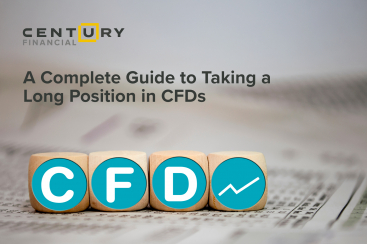Thursday, March 23, 2023
What are corporate actions and how do they impact stock prices?
تم إعداد هذا المنشور من قبل سنشري للاستشارات

.jpg)
On March 20, 2023, UBS (UBS) announced plans to acquire Credit Suisse Group AG (CS) in an emergency rescue deal. On that day, the share price of Credit Suisse Group dropped, thereby impacting shareholders. This is an example of a corporate action undertaken by UBS and demonstrates how such actions can significantly influence share prices.

What are corporate actions?
In the business world, for better or worse, a company’s future is determined by its corporate actions. And a better understanding of how the corporate action life cycle works will help give an idea of how a company conducts its business and manages its financial health.
Corporate actions are initiatives taken by the Board of Directors of a company with the approval of shareholders. The decisions made can have a substantial impact on a company and its stock price. It could be something like rebranding and changing a company’s name to deciding to declare dividends. Other examples of corporate actions include mergers and acquisitions, share buybacks, and stock splits.
Corporate actions can be broadly categorized into two types based on their impact - monetary and non-monetary. It means that some corporate actions have a financial impact while others don’t.
So, let us look at the type of corporate actions that influences online trading activity and how:

Dividends
A corporate action can include a company that pays out dividends. This is basically where a company pays shareholders a portion of its profits or reserves as a form of income. In most cases, dividends are paid per share basis or a percentage of the share’s face value.

Bonus Issue
Another way companies take corporate action is through the issue of bonus shares where additional shares are issued to shareholders. A common example is a 1:1 bonus issue, where investors get an additional share for every share they own. But how is the market capitalization of a company affected when a bonus issue is made?
While bonus issues increase the number of shares held by investors, they also decrease the market price of each share. As a result, the market capitalization of the company remains the same. The allotment of bonus shares is done in accordance with each shareholder’s stake. Thus, bonus shares are issued in a constant ratio, thereby leaving the relative equity of each shareholder undiluted.

Stock Split
Well, just like the name suggests, a stock split occurs when a stock is split into two or more portions. Working on the same principle as a bonus issue, here, the number of shares increase, but the value of the investment remains the same.
There are several reasons for companies to initiate corporate actions such as enhancing participation of retail investors, influencing share price and liquidity, returning profits to shareholders, and corporate restructuring.

Rights Issue
When a company initiates a rights issue, it essentially encourages existing shareholders to purchase additional shares in the company, typically at a discount to the market price. Companies usually use the proceeds from a rights issue to finance an expansion project, acquire new assets, or reduce debt. So, if investors are offered these rights issues, they need to do their research and be confident about that company’s future.

Buyback of Shares
When a company decides to repurchase its shares, it is generally a positive sign as the company seems confident about what it is doing and its future. This facilitates the return of profits to shareholders in a more tax-efficient manner than paying dividends.
Other reasons for buying back shares include:

Preventing another company from taking over

Preventing the share price from dropping further

Building confidence

Ownership consolidation

Lowering cost of capital

Improving key financial ratios
A sudden rise or fall in the price of a stock can be the result of corporate actions, and that is why understanding them, and their impact is important.
لا تقدم شركة سنشري للإستشارات والتحليل المالي ش.ذ.م.م (الشركة) محتوى هذه المدونة، بما في ذلك أي أبحاث أو تحليلات أو آراء أو توقعات أو أي معلومات أخرى (يُشار إليها مجتمعةً باسم "المعلومات")، إلا لأغراض التسويق والتثقيف وإتاحة المعلومات العامة. ولا يُفسَّر ذلك على أنه نصيحة استثمارية أو توصية أو دعوة لشراء أو بيع أي أدوات مالية.
كما يجوز نشر هذه المعلومات عبر قنوات مختلفة، بما في ذلك موقع الشركة الإلكتروني، ومنصات الغير، والنشرات الإخبارية، والمواد التسويقية، ورسائل البريد الإلكتروني، ووسائل التواصل الاجتماعي، وتطبيقات المراسلة، والندوات الإلكترونية، وغيرها من وسائل التواصل. وبينما تسعى الشركة لضمان دقة المحتوى، فإنها لا تضمن اكتماله أو موثوقيته أو تحديثه في الوقت المناسب. وعليه، فأي قرارات تُتخذ بناءً على هذه المعلومات تكون على مسؤوليتك الشخصية. ولا تتحمل الشركة أي مسؤولية عن أي خسارة أو ضرر ناتج عن استخدامها.
ينطوي تداول المنتجات المالية على مخاطر كبيرة، بما لا يتناسب مع جميع المستثمرين. فيُرجى التأكد من وعيك التام بالمخاطر، وطلب الاستشارة المهنية المتخصصة إذا لزم الأمر.
يُرجى الاطلاع على بيان كشف المخاطر الشامل المتوفر على موقعنا الإلكتروني.
















